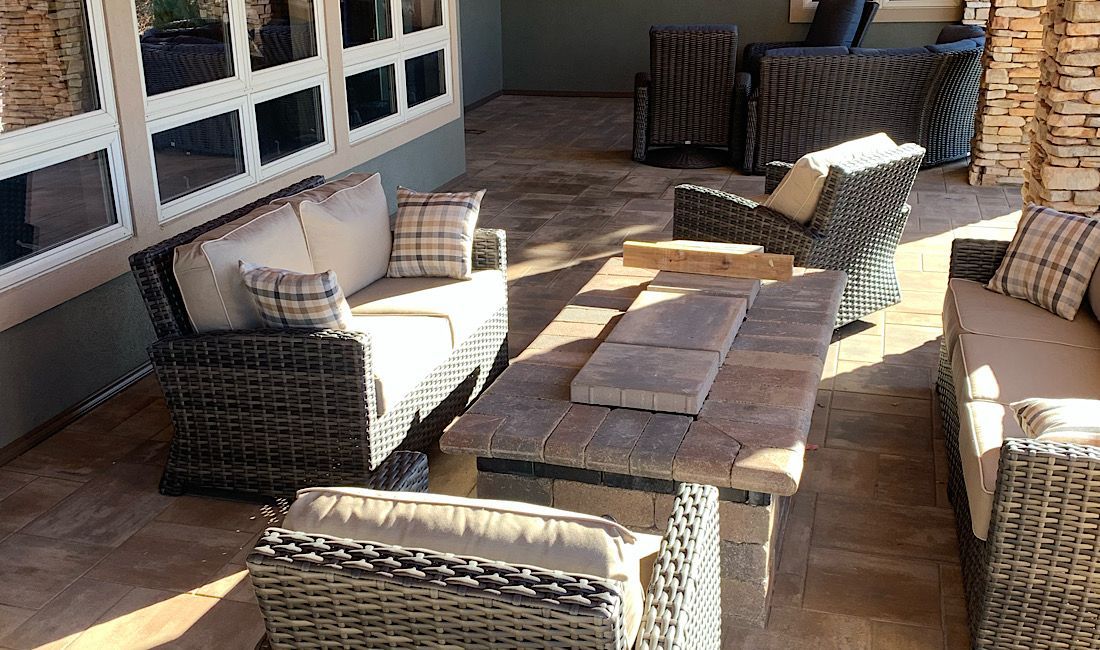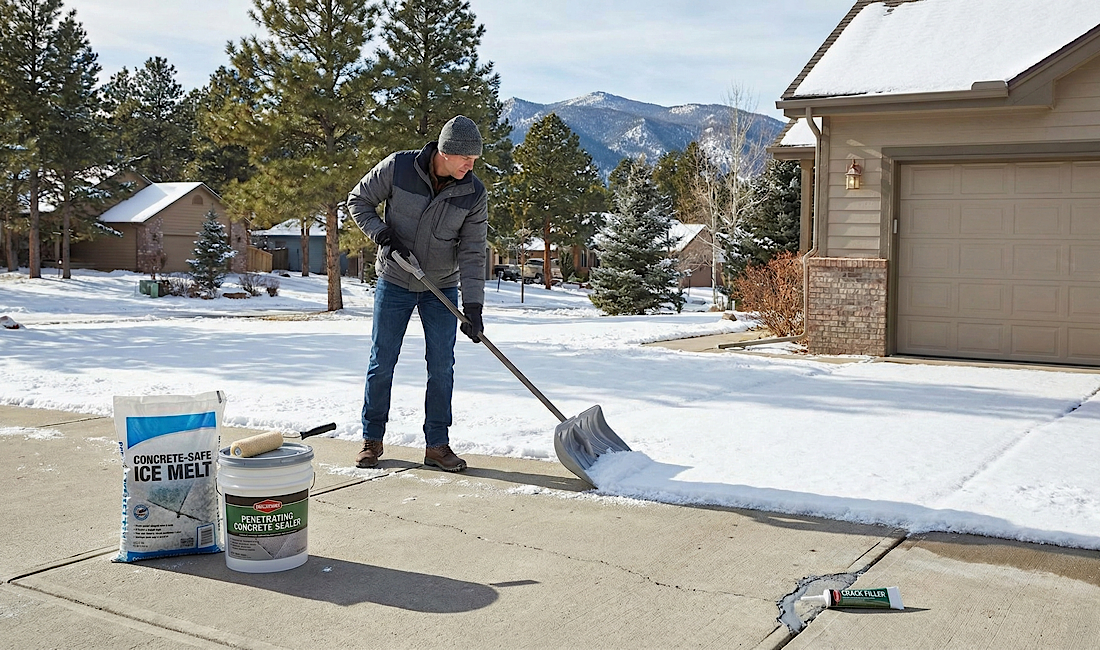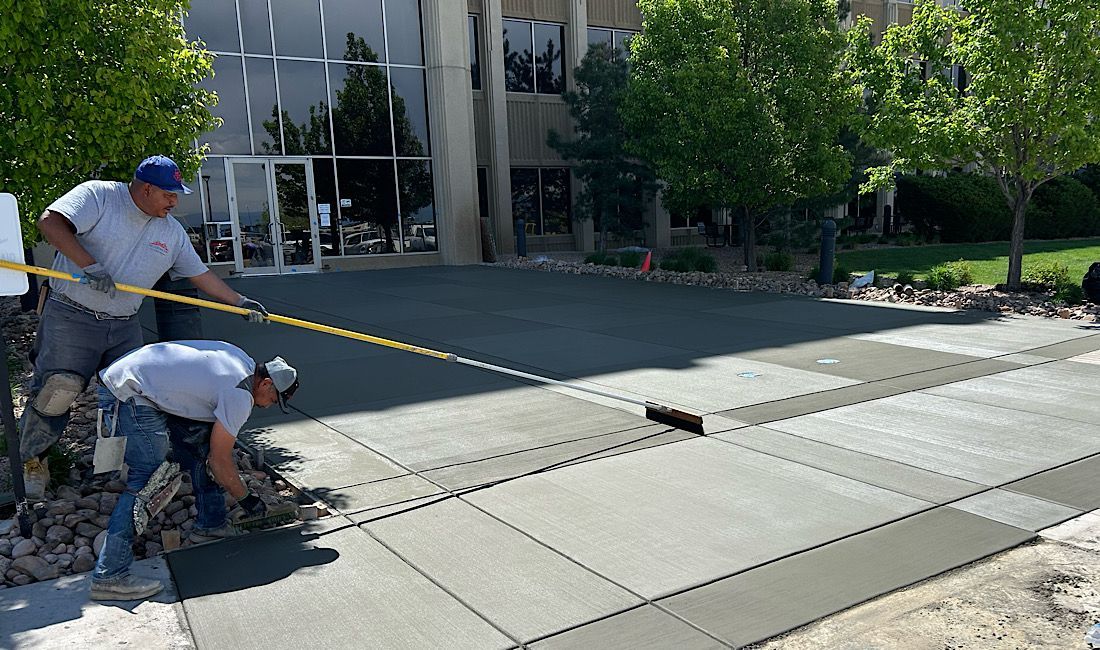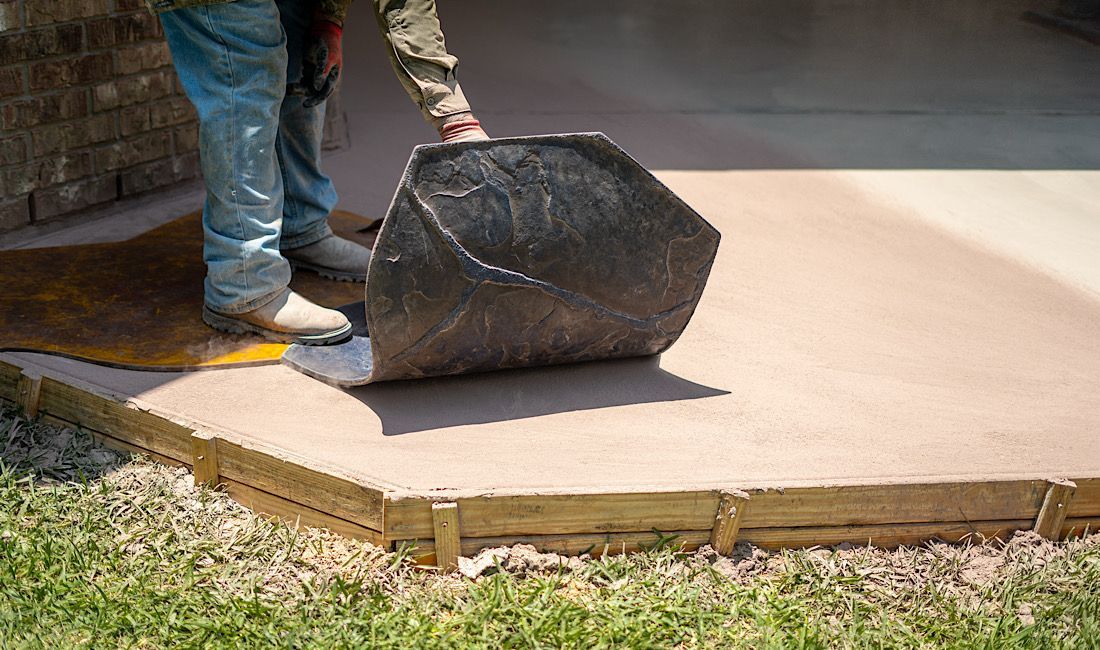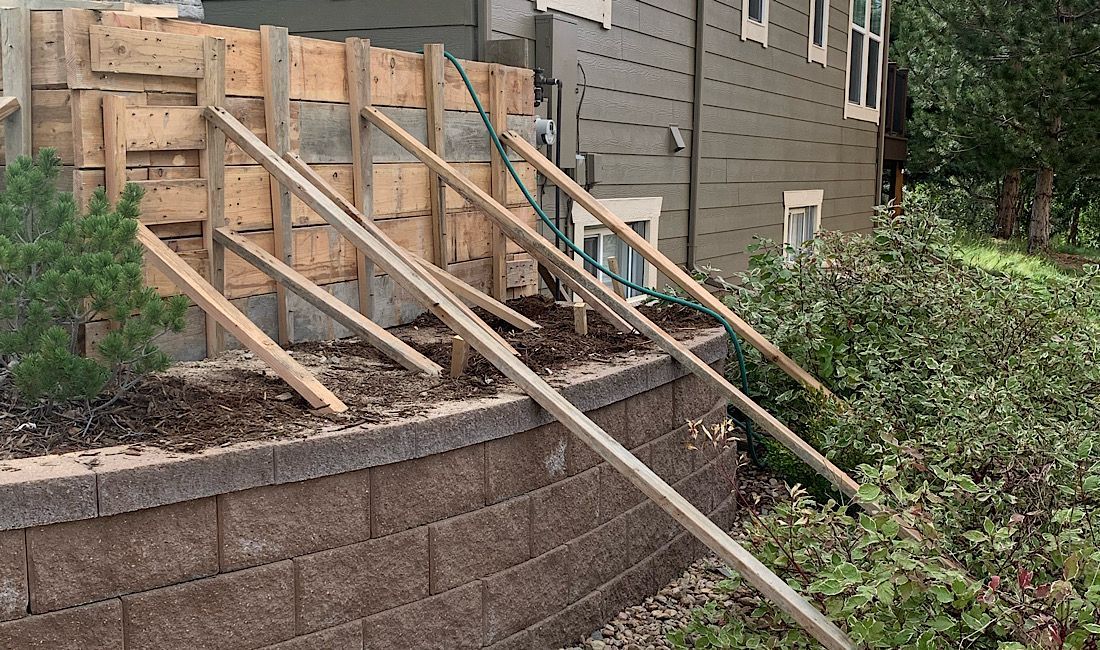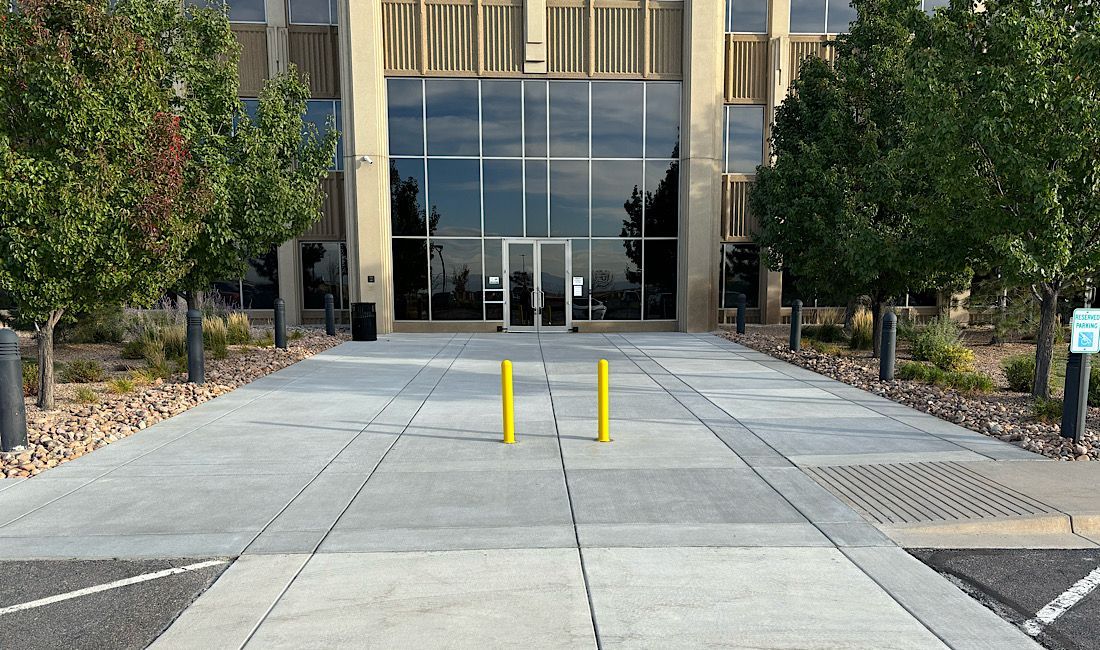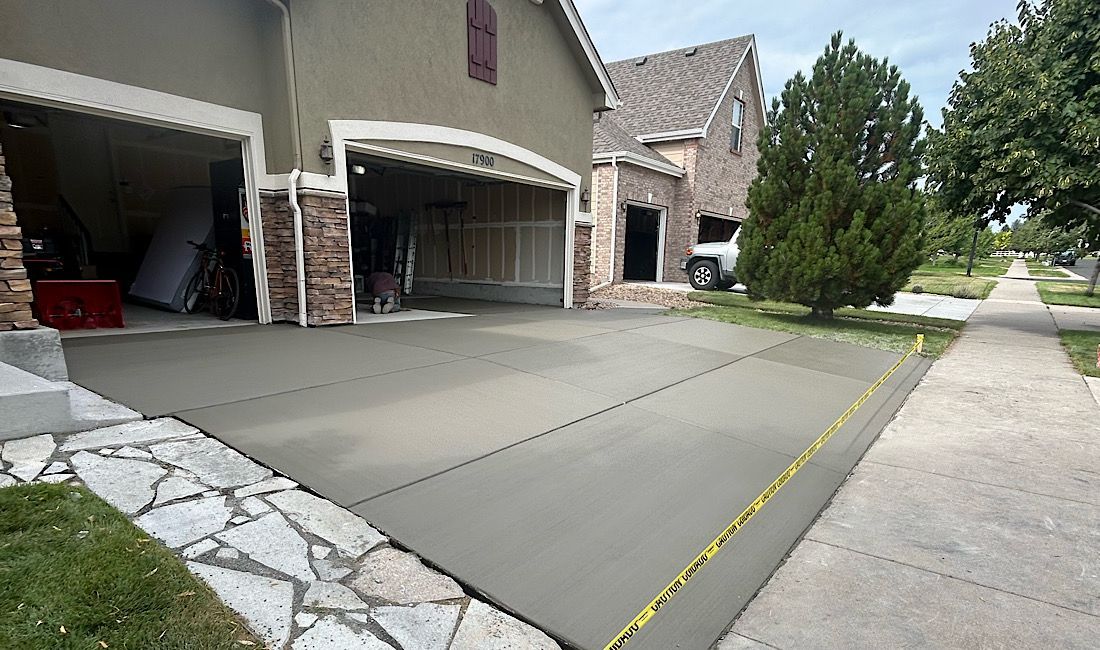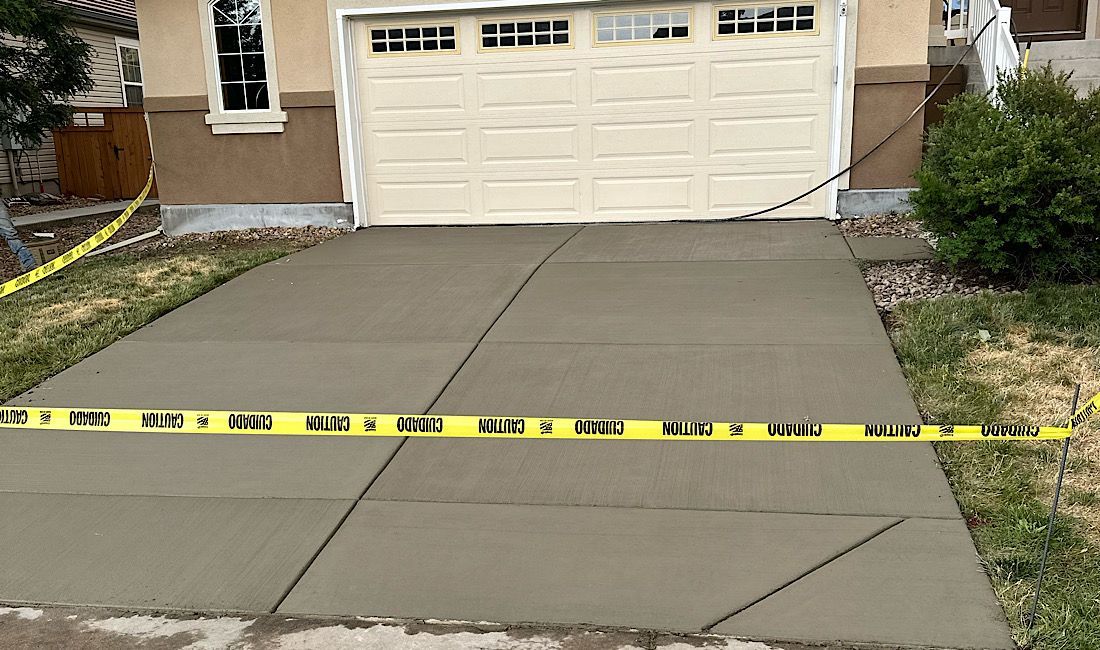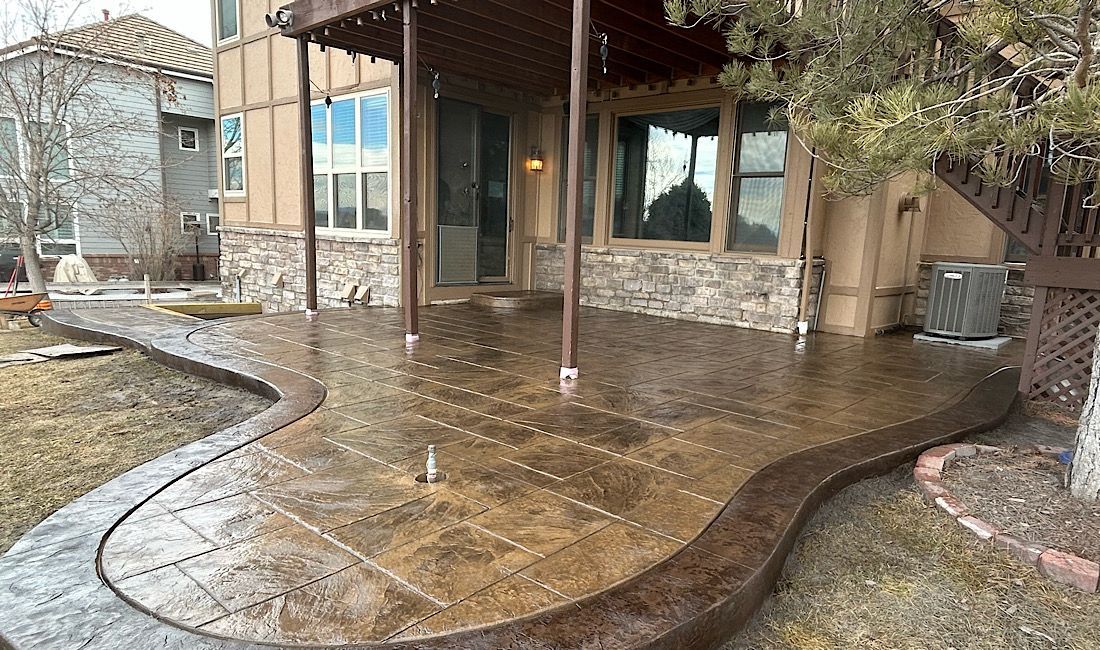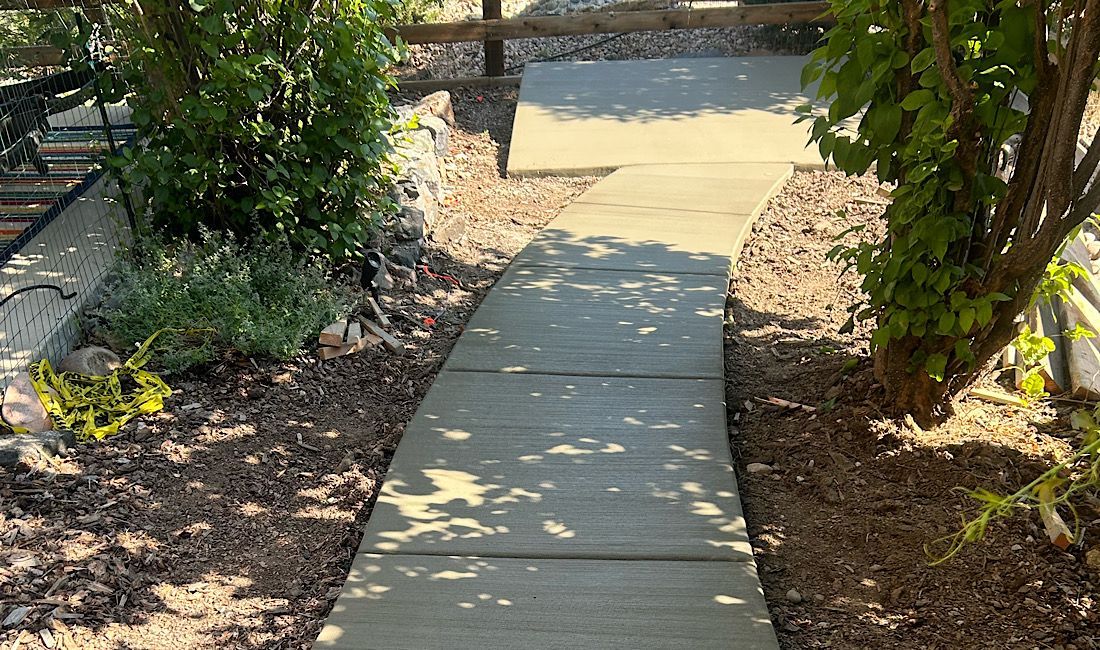Denver winters bring a unique set of challenges for homeowners, business owners, and property managers. While snow-capped mountains make for a beautiful backdrop, the harsh combination of freeze-thaw cycles, de-icing chemicals, and heavy snow removal can wreak havoc on driveways, patios, and walkways. Without the right seasonal care, even the most durable concrete surfaces may crack, spall, or deteriorate prematurely.
The good news is that with proper maintenance, concrete can withstand Denver’s unpredictable weather and continue to provide safety, functionality, and curb appeal. Whether you’re a homeowner looking to protect your driveway, a business owner keeping sidewalks safe for customers, or a property manager overseeing multiple sites, these practical winter care tips will help you extend the life of your concrete surfaces.
Why Denver Winters Are Tough on Concrete
Denver’s climate combines three main factors that accelerate concrete damage in winter:
- Freeze-Thaw Cycles: Water seeps into tiny pores and cracks in concrete. When temperatures drop below freezing, the water expands as it turns to ice, widening cracks and weakening the surface.
- De-Icing Chemicals: Traditional rock salt (sodium chloride) lowers freezing points but also breaks down concrete’s surface layer, causing scaling and spalling.
- Snow Removal Practices: Metal shovels, plows, and improper scraping can chip or gouge surfaces.
Over time, these factors can cause significant damage if preventive measures aren’t taken.
Essential Concrete Care Strategies for Denver Winters
1. Seal Your Concrete Before Winter Hits
Applying a high-quality sealer in the fall creates a protective barrier against moisture and de-icers. Sealers reduce water penetration and prevent freeze-thaw damage. For high-traffic areas like driveways and sidewalks, experts recommend resealing every 2–3 years.
2. Use the Right De-Icing Products
While salt may seem like the easiest solution for icy surfaces, it’s also one of the most damaging. Instead, opt for:
- Calcium Magnesium Acetate (CMA): A safer, eco-friendly alternative that doesn’t harm concrete.
- Sand or Kitty Litter: Provides traction without causing chemical damage.
- Potassium Chloride: Less harsh than rock salt but still effective in moderate conditions.
Avoid magnesium chloride and ammonium-based de-icers, which are especially damaging to concrete.
3. Clear Snow Promptly
Leaving snow and ice on concrete increases the risk of freeze-thaw damage. Shovel early and often, using a plastic shovel or snow blower instead of a metal blade to avoid scratching. For commercial properties, consider professional snow removal services to maintain both safety and concrete health. You can also read more about preparing concrete surfaces for snow removal season.
4. Repair Cracks Before Winter
Small cracks may seem harmless, but winter weather can quickly make them worse. Use crack fillers or epoxy before the first freeze to prevent water from seeping in. For larger cracks or uneven slabs, professional repair may be needed before snow sets in. See our expert guide on how to spot and repair concrete cracks before winter hits.
5. Avoid Heavy Loads in Winter
When the soil beneath concrete freezes, it expands and makes the slabs more vulnerable to stress. Parking heavy vehicles or equipment on frozen concrete increases the risk of cracking or sinking.
6. Maintain Proper Drainage
Standing water is a concrete surface’s worst enemy in winter. Make sure downspouts and gutters direct water away from slabs, and avoid piling snow where it can melt and refreeze on driveways or patios.
7. Keep Surfaces Clean
Winter often brings grime, slush, and chemical residue. Regularly rinsing surfaces with clean water (on warmer days) helps remove corrosive de-icing chemicals before they can penetrate the surface.
Long-Term Benefits of Winter Concrete Care
Taking preventative steps each winter not only saves money on repairs but also:
- Extends Lifespan: Well-maintained concrete can last 25–30 years, compared to only 10–15 years for neglected surfaces.
- Protects Curb Appeal: Stains, scaling, and cracks detract from a property’s appearance.
- Improves Safety: Preventing uneven surfaces and reducing ice buildup helps avoid slips and falls.
- Saves Money: Proactive care costs far less than replacement, which can run $8,000–$15,000 for a standard driveway in Denver.
Professional Help for Winter Concrete Maintenance
While homeowners can handle tasks like sealing, shoveling, and basic crack repairs, more extensive protection may require a professional. Contractors like CreteWorx in Denver offer specialized services such as resurfacing, polyjacking, and advanced sealing techniques designed for Colorado’s climate. Partnering with a local expert ensures your concrete surfaces are built and maintained to withstand harsh winters.
Frequently Asked Questions About Winter Concrete Care
How often should I seal my concrete in Denver?
Most driveways, patios, and walkways should be sealed every 2–3 years. High-traffic areas may benefit from annual sealing for maximum protection.
Can I use rock salt on my concrete?
Rock salt should be avoided. It accelerates scaling and spalling. Safer alternatives like calcium magnesium acetate or sand are recommended.
What should I do if my concrete cracks during winter?
Small cracks can be temporarily filled, but it’s best to schedule professional repairs in the spring. Addressing issues early prevents them from worsening.
Is stamped or decorative concrete harder to maintain in winter?
No. Stamped and decorative concrete requires the same care as standard slabs—regular sealing, careful de-icing, and proper snow removal.
Can snow plows damage concrete?
Yes. Metal blades can chip or scratch the surface. If hiring snow removal services, request rubber-tipped or plastic blades.
Does Denver’s altitude affect concrete care?
Yes. Strong UV rays at higher elevations can weaken sealants faster, meaning Denver homeowners may need to reseal more frequently than in lower-altitude areas.
Concrete is an investment that adds function, beauty, and value to homes and businesses in Denver. But without proper care during the winter months, that investment can quickly deteriorate. By sealing surfaces, using the right de-icers, repairing cracks early, and practicing safe snow removal, property owners can protect their driveways, patios, and walkways from Colorado’s harsh seasonal elements.
For those seeking added peace of mind,
working with experienced local contractors like CreteWorx
ensures concrete surfaces remain strong, safe, and attractive year after year. A little preparation before the first snowfall goes a long way toward avoiding costly repairs and maintaining your property’s appeal.
